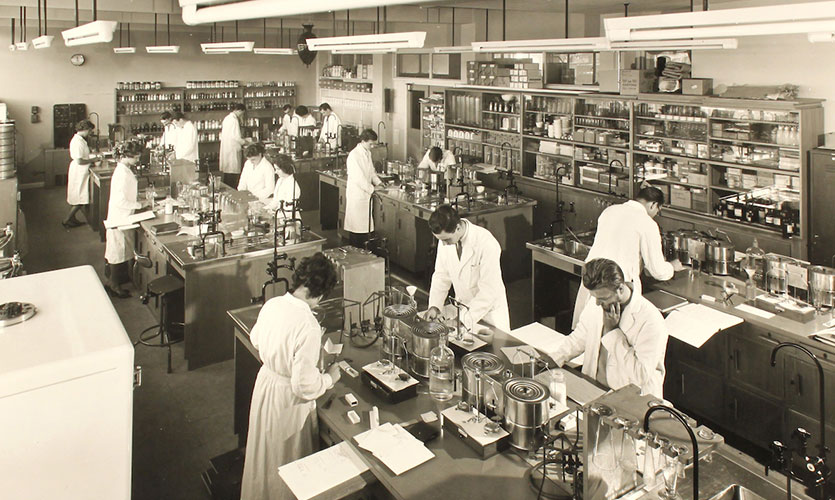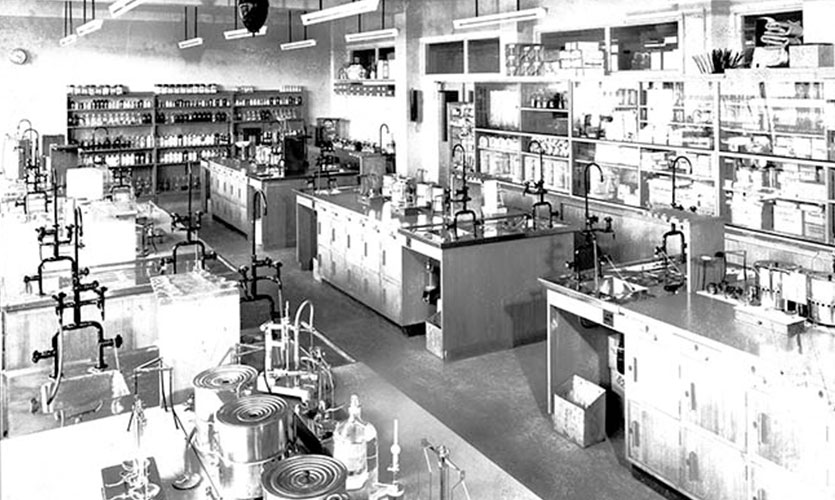Henry Humphreys ‘Humph’ Jones 1878 - 1971
The Liverpool School of Pharmacy evolved from the formation of the Liverpool Chemists' Association. Established in 1849 by local chemists and druggists, the school was set up to ensure ‘proper instruction’ for pharmacists. Lectures on the classification of plants were soon supplemented by practical classes in pharmaceutical chemistry and Latin for pharmacists and as student numbers increased, facilities grew to include labs, larger lecture theatres, a microscope room and even a museum.
Henry Humphreys ‘Humph’ Jones served as Principal of the School of Pharmacy for 42 years from 1908. It was during this period that many young women began to register an interest in pharmacy education.
He is perhaps the most distinguished of all the principals, overseeing the school's greatest period of expansion. He had an unpromising start when 32 out of 33 enrolled students withdrew from the course rather than risk their money and future prospects with a novice teacher. He survived this period of financial hardship by teaching part-time students and slowly built up his reputation
“I had a very interesting time in training them, they were so different from the boys, easy to teach because everything was new to them, and they learned quickly; they were always neat and tidy in their work. They found no difficulty in obtaining appointments and were so successful that many continued and became Pharmacists'.”
– Henry Humphreys ‘Humph’ Jones on how female students were easier to teach then their male counterparts

In 1909 he became a Fellow of the Chemical Society and Secretary of the Liverpool Chemists’ Association. He was President from 1912 to 1915, then again between 1932 and 1933 and finally in 1948, for the Association's centenary year.
In his 90s, he wrote an autobiography published in 1971, In My Yesteryears: From Farm to Pharmacy, in which he describes his childhood on an isolated rural farm in North Wales and his determination to receive an education in pharmacy following his mother's interest in the curative properties of plants, learning Latin and struggling to finance his studies.


